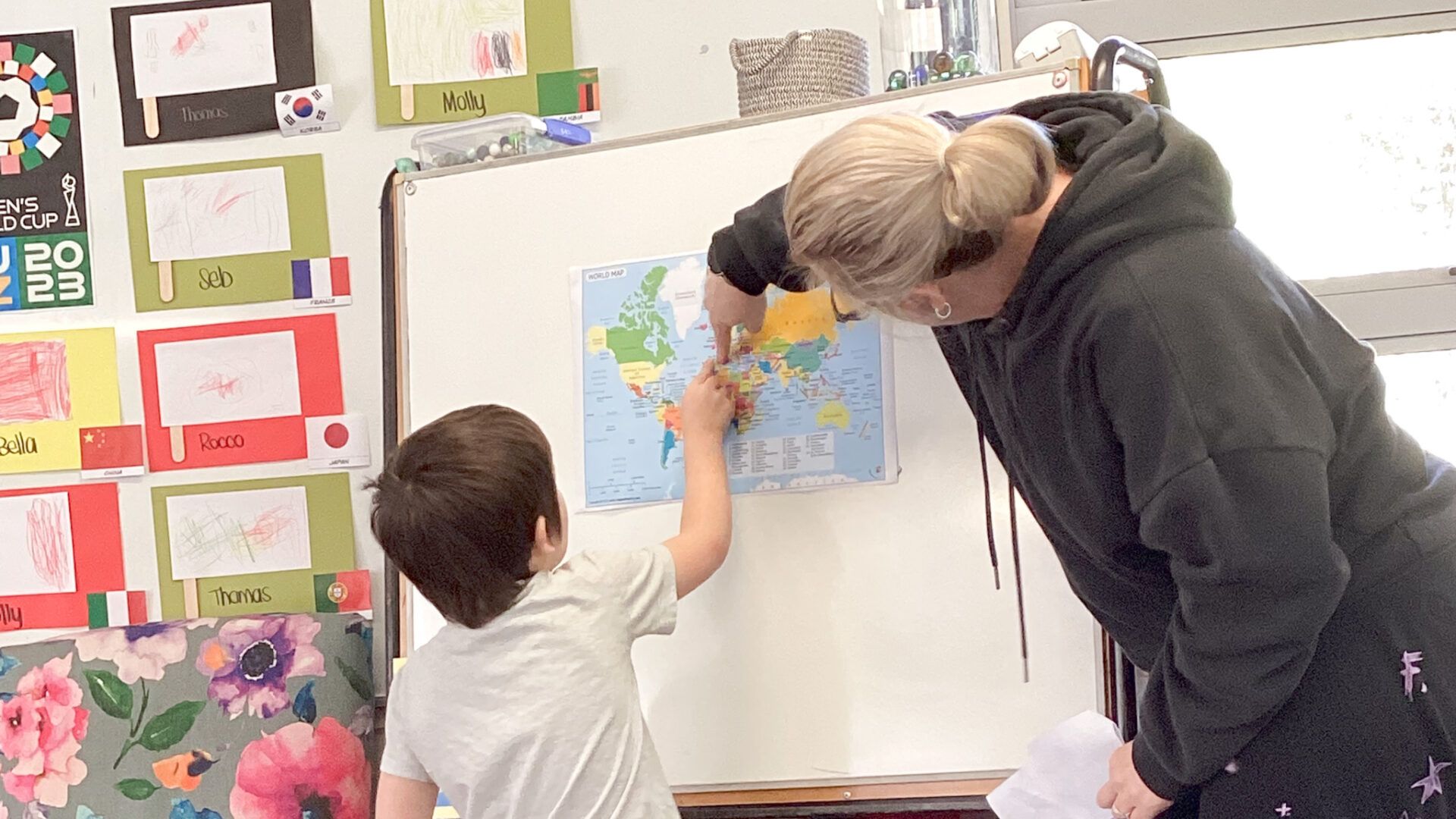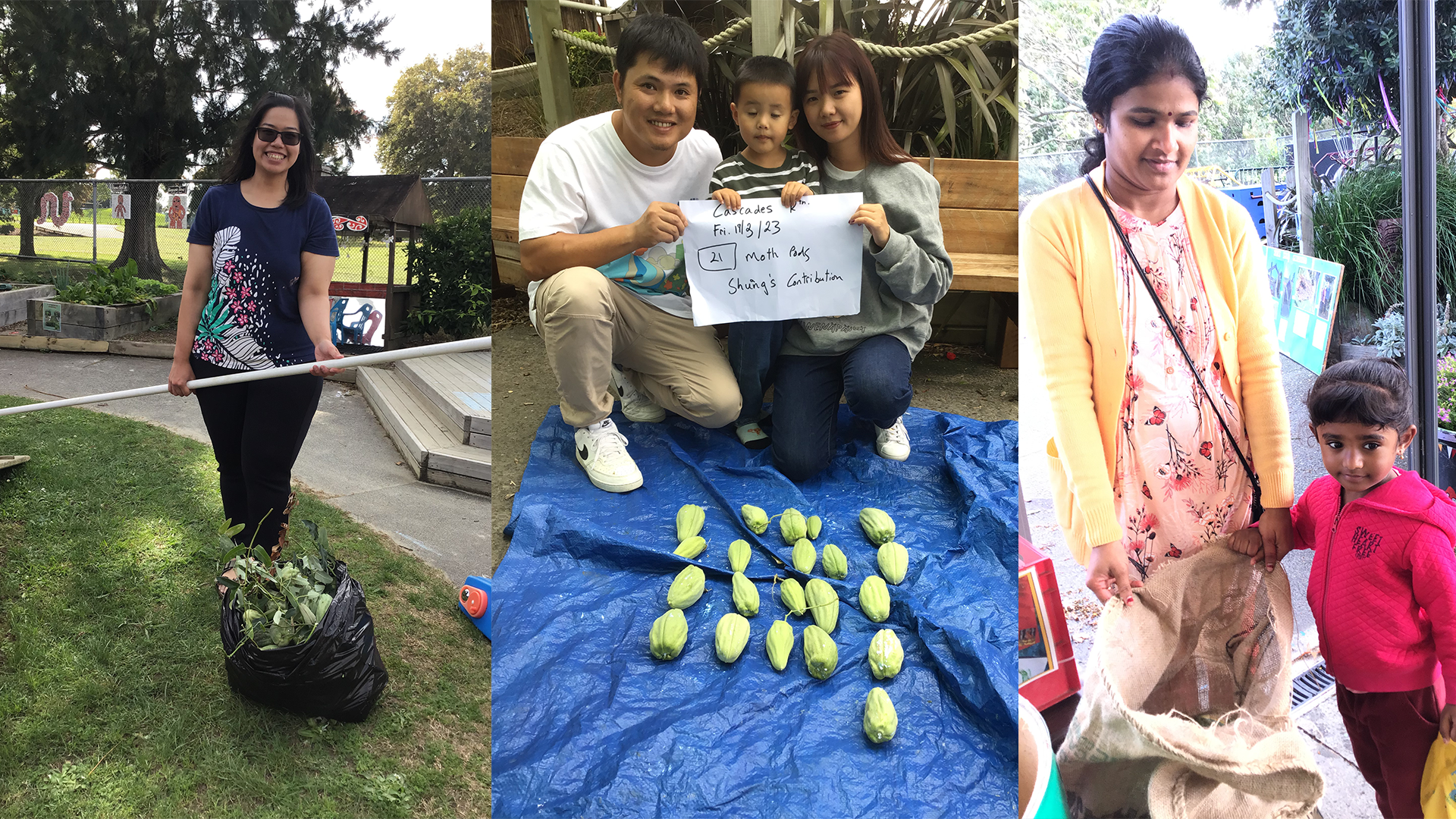At Cascades Kindergarten, we are earth healers. We are ocean lovers. We are children of the environment. We have a collective responsibility to healing the world, starting in our own backyard. Each one of us can be the change we want to see. We can make the world a better place by doing simple things, every day. For example, sorting our waste responsibly, taking the garbage out for recycling, turning off the lights to save electricity, closing the tap when brushing our teeth, using cloth shopping bags instead of plastic ones, and once in a way, getting involved in a beach clean up or eradicating weeds like the Moth Pod.
Our 2023 Moth Pod participation highlighted a new aspect – how crucial language is to communication and through this, to participation.
Our families rallied behind us until the last hour on the last day, to increase our moth pod and small vine count for the Howick Ward Moth Pod Eradication Competition. From making devices that could pull down pods from high up in the trees, to donating their own backyard gardening tools for us to use, every whānau found a way to pitch in and support Team Cascades. Of particular significance to us this year, was the realisation that language is crucial to any community campaign.
For weeks we had posters displayed around our kindergarten and on our electronic platform – Storypark. However, they were all in English. Little did we realise, that many of our older grandparents would not be able to read or understand this call for help. It was during face-to-face communication with one grandparent, kaiako realised he had no idea of what we were trying to achieve. By using the Auckland Council Mandarin leaflets and other parents translating verbally, our message was conveyed. Only one hour later, that same granddad came back with a sack full of moth pods to add to our tally.
This was a deep learning to us as kaiako to not make assumptions that everyone can read and understand English or is able to translate our Storypark posts. Our grandparents are the ones who are the anchor of every home, and they are the ones that have an eye for spotting pest weeds like the moth pod. Getting the message across to them, in their mother tongue, is crucial to the success of big projects such as eradicating moth pods from East Auckland.
Ultimately, children’s language and literacy development and learning can be well supported, when all in their whānau are involved in their educational settings and when a range of adults support and guide tamariki in their endeavours.
Without the benefit of a shared language, or when cultural practices are not clearly understood, it can be challenging. Fostering successful partnerships with families, from culturally and linguistically diverse backgrounds, is beneficial to both tamariki and kaiako. At the end of the day, we have to recognise and respond to the individual nature of different families – who they are, how they do things, what their believe and what they need. We need to consistently demonstrate to whānau and tamariki that their home language is valued. Maintaining and using their home language is important to children’s participation in kindergarten life, and to their sense of identity and self-esteem.
The use of a child’s home language within and outside of the kindergarten should be encouraged and developed. Going forward, at Cascades Kindergarten, we will endeavour to display notices, posters, charts and signs in both English and the home language of our community.
When whānau participate in our programme, their sense of belonging and level of comfort can be increased when our environment reflects their own language and culture. We placed 2nd in the Moth Pod Eradication Competition this year, all thanks to our community that supported us.


